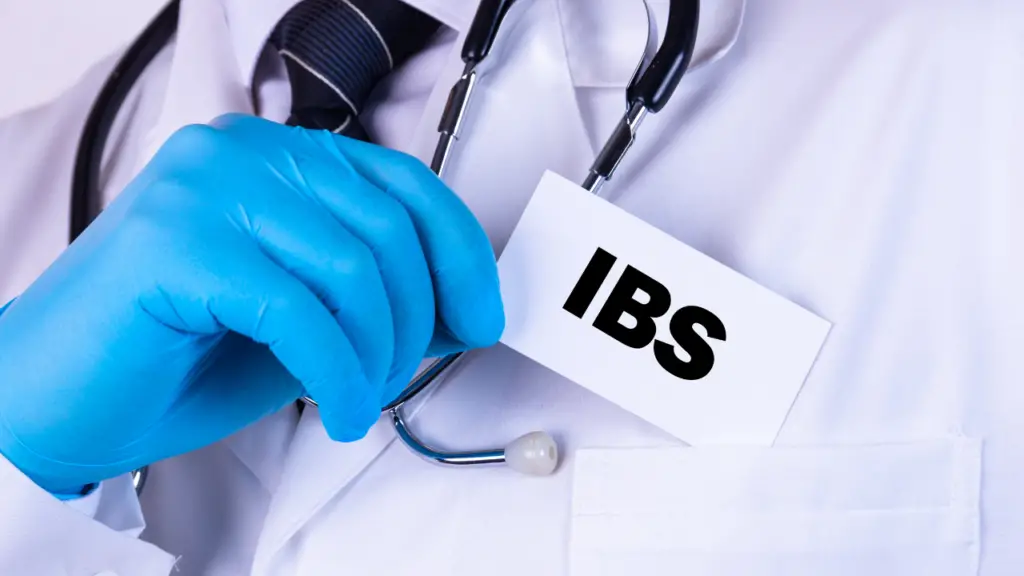A gluten-free diet has been becoming increasingly popular in today's times. Some people adhere to it out of choice, while some do it out of medical necessity.
The two most prevalent diseases that cause one to switch to gluten-free food are celiac disease and irritable bowel syndrome. But most often, people tend to confuse the two as the same even though there is a considerable difference between celiac disease and IBS.
If you are confused about which of the two you might have and want to explore the difference between celiac disease and IBS, we are here to help you. Let us first start with understanding what each of them is and how they are interrelated.
Celiac Disease – Diagnosis, Symptoms And Treatment

When you experience extreme sickness and discomfort in your body, especially after consuming gluten foods, you might have something more than just gluten intolerance. You may have an underlying issue, such as celiac disease.
But often, people become confused between Celiac and IBS. Let us understand the diagnosis, symptoms, and treatment for celiac disease first.
Let's start with celiac disease. It is a disorder of the digestive system which occurs due to an unusual immune reaction to gluten. In people with celiac, their intestines or the gut lining do not react well to gluten—three other known names as celiac sicknesses are Sprue, Non-tropical Sprue Gluten-sensitive Enteropathy.
In celiac, the immune reaction to gluten makes poisons that obliterate the villi. Villi are tiny fingerlike projections inside the small digestion tracts. When the villi are harmed or even slightly disturbed, the body cannot absorb the vital supplements from food. Thus, it can give rise to extreme pangs and other unexpected problems, including perpetual harm to the intestines.
Individuals with celiac need to eliminate all gluten from their daily diet and go completely gluten-free. It includes the complete exclusion of most bread items, processed food products, certain alcohol types, and food sources containing gluten as an ingredient.
The general symptoms of celiac sickness include the effects on the entire digestive system, yet they can also influence different body parts. However, although some symptoms are similar amongst children and adults, many symptoms vary between the two.
Celiac Symptoms In Children

Generally, the children affected by celiac disease are easily exhausted and irritated. They may have extreme mood swings due to the discomfort they feel in their digestive system.
Their stature could also be different from the other children of their age, and they may seem smaller compared to their peers. Also, there are chances of them going through puberty later than usual.
Other symptoms of celiac sickness in children include but are not limited to:
- Sudden weight loss
- Regular and uncomfortable bloating in the stomach
- Recurring pain and discomfort in the stomach
- Constant feeling of nausea
- Vomiting
- Frequent constipation or diarrhea
- Bowel movements with extreme odor and greasy texture
Symptoms Of Celiac Disease In Adults

Adults who have celiac disease may readily experience symptoms in their stomachs. However, again like in children, gluten affects other parts of the body majorly, too, which is why the entire body in adults might seem symptomatic.
The different symptoms may include but are not limited to:
- Iron deficiency
- Anemia
- Weak bone density
- Extreme fatigue
- Weak and painful joints
- Frequent stiffness in joints
- Stained teeth or discoloration of teeth
- Epileptic seizures
- Rashes and discomfort on the skin
- Allergies of the skin
- Frequent mouth ulcers
- Gum pain
- Weakness of the limbs
- Irregular period cycles
- PCOD or PCOS in women
- Fertility issues
Dermatitis herpetiformis (DH) is another general symptom of celiac. DH is a seriously bothersome skin rash that causes barriers in an individual's daily functioning due to the discomfort. This rash may be on the elbows, knees, or back. It roughly affects around 15 to 25 percent of individuals with celiac. But if one has DH, likely, they may not have symptoms despite having celiac disease.
However, it is imperative to note that not all symptoms are visible in all individuals. The signs or lack of them may differ from one person to another, mainly depending on various factors of their lifestyle, including:
- The age when gluten consumption first started
- The period for which the individual was given breast milk in their childhood
- The amount of gluten consumed by the individual
- The range of how much harm has been caused to the intestines or the gut lining
Strangely, many people with celiac do not show any kinds of symptoms at all, but they may retain the side effects of gluten consumption in the long run.
IBS – Diagnosis, Symptoms, And Treatment

Statistically, around 3% to 20% of Americans experience the symptoms of IBS. This syndrome is likely to be experienced by more women than men. While some people may experience minor symptoms, others may experience bothersome and uncomfortable symptoms in their daily lives.
IBS also has other names like spastic colon, peevish colon, mucous colitis, and spastic colitis. It is a reasonably different condition than celiac disease, and you cannot identify it with other conditions. IBS, in general, is all the discomforts that happen in the intestines.
Like celiac, IBS symptoms differ from one individual to another in terms of their level and duration. It can range anywhere between 3 days in a month to 3 months at a stretch in different individuals.
There is also a possibility of grave harm caused to the intestines due to IBS, which certainly is not normal. Although unlike most misconceptions state, IBS in no way enhances one's chances of getting gastrointestinal tumors, it does affect one's daily activities due to the discomfort it causes.
IBS Symptoms
The symptoms of IBS include but are not limited to:
- Extreme abdominal pain
- Stomach cramps
- Frequent bloating
- Flatulence
- Constipation
- Diarrhea
While those affected by IBS may have bouts of constipation or diarrhea, their bloating and flatulence may be helped when they have a bowel movement.
There are also cases where people have had their symptoms go back to normal while others have recurring symptoms even after they have resolved for a short period. There is no answer as to why a person has IBS, but a proper diet eliminates some issues.
Symptoms Of IBS In Women
In women, the symptoms of IBS are generally more activated around the time of their menstruation. The symptoms may be much lesser for women who have already attained menopause than those still in having their cycle. In some cases, women have also mentioned their IBS symptoms being aggravated during their pregnancies.
Symptoms Of IBS In Men
Although IBS symptoms in men are similar to those in women, a comparatively lesser number of men complain of IBS symptoms than women.
Generally, IBS pain may come across as cramps and twisting in the stomach, which may be relieved when they have adequately defecated.
Treatment For IBS

The treatment for IBS may differ depending on the doctor's method of diagnosis. And the diagnosis is majorly based on the symptoms of the individual.
The different forms of diagnosis of IBS are:
- Following a specific diet or eliminating foods from their diets to check for food allergies
- Taking a feces test to check for contaminations
- Blood tests to check for celiac disease
- Colonoscopy (A colonoscopy takes place only if one's doctor speculates that the symptoms are, in fact, due to colitis, Crohn's disease, or cancer)
There is no permanent solution for IBS. Most treatments for it are focused on the level and frequency of symptoms. Generally, the doctor may ask you to embrace home remedies for IBS instead of medications if the symptoms are easily controllable.
Some of the solutions may include:
- Regular workout routines
- Cutting down on drinks that quickly activate and irritate the digestive system
- Sticking to lighter meals and not eating processed foods
- Staying stress-free either through helpful activities or therapies
- Consumption of probiotics or good bacteria to help with bloating and flatulence
- Avoiding fast food and spicy dishes
Celiac Vs. IBS – Differences And Similarities

Celiac disease and IBS share many similarities, which is why people often get confused between the two. But there are differences between celiac disease and IBS.
According to experts, the cause of genuine IBS does not originate anywhere. It is merely the portrayal of a syndrome. Whereas in celiac disease, there is more to it than just its side effects or symptoms.
The disease can gravely harm your intestines or your gut lining when it comes in contact with gluten. Also, you may not always experience the symptoms of celiac, unlike the symptoms of IBS.
Gluten Affectability
Other than celiac disease, there are two responses to gluten, gluten sensitivity and gluten intolerance. Those with gluten sensitivity have more IBS-like symptoms. Sensitivities are less inclined to cause GI symptoms as a response.
Gluten Intolerance is doubly precarious because celiac disease is likewise receptive to gluten. For individuals who experience IBS symptoms after consuming wheat, it tends to be challenging to determine the actual cause of such symptoms.
Absence of Side Effects
Not all individuals with celiac disease notice gastrointestinal (GI) side effects. In contrast, this is not the case for IBS. The symptoms of IBS are readily visible and experienced by the patient. If you do not see IBS symptoms in your body, you most definitely do not have it.
The two conditions have different symptoms, like in IBS, there is diarrhea, constipation, and changes in your stools' appearance. However, various celiac disease symptoms include signs and complexities, right from complications in the dental region, joint issues, and even seizures.
Development
Ordinary digestive organs, i.e., your bowels, have regular motility that includes stretching and contracting. With IBS, the digestive organs cramp, become bloated, and cause extreme and constant discomfort. Celiac disease affects the small intestine and damages the villi, making your body unable to absorb nutrients.
Also, celiac disease is considered an immune disorder that significantly affects the patient's life and lifestyle, where IBS is not an immune disorder.
Conclusion

The confusion and debates surrounding IBS vs. Celiac have continued for a long while. Especially since the symptoms of both these conditions are similar to each other, you will be diagnosed by a doctor who will do the proper testing to see if you have IBS or celiac.
When one goes through a proper diagnosis, you must follow the necessary treatment procedures since either of these conditions may disrupt the functioning of your daily life.
Choosing to eat a gluten-free diet is beneficial in either diagnosis.
Embracing a gluten-free lifestyle and using gluten-free products will help you live a healthier life. Consult your doctor before you diagnose the condition on your own if you notice any symptoms. It is best to have a proper diagnosis and treatment and thus results in faster relief.





